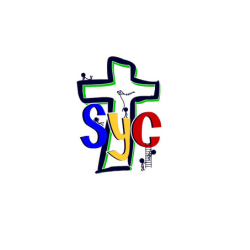We believe the early years (ages 0 – 5) are a critical period in the physical, social, spiritual, language, emotional and cognitive development of the child and are indicators of the child’s future well being and adjustment in society.
Research indicates that young children profit socially, cognitively, and emotionally by group experiences in preschool and kindergartens. Language development is aided; creative thinking is stimulated; traits such as resourcefulness and initiative are encouraged; and skills of self-discipline and group participation are fostered.
At the School for Young Children, we strive to provide each child with a developmentally appropriate curriculum, meeting the different needs of each child depending on their developmental level.
It is our purpose at the School for Young Children to have an excellent, nurturing, Christian preschool program that develops the full potential in every child.
PROGRAM ACTIVITIES FOR PRESCHOOLERS
PROGRAM OBJECTIVES
To provide for the spiritual development and Christian Education through the loving guidance of Christian adults.
To provide many opportunities for social development and group interaction.
To promote development of good health habits.
To meet the physical, motor, cognitive, language, and social/emotional needs of every child in a developmentally appropriate fashion.
To provide opportunities for self-expression through language, music, art and play experiences.
To provide situations in which the child can succeed and through success, build confidence in the child’s own ability and worth.
To develop an atmosphere in which creativity is stimulated.
To develop a feeling of adequacy through emphasis on independence and self-direction.
To provide a wealth of learning experiences in which lay the foundation for subject matter learning and intellectual growth.
To enable the appropriate understanding, acceptance, and expression of different emotions.
Motor, Language, Social, Emotional, and Cognitive
Children learn through a variety of experiences: through use of all their senses, through direct, concrete experiences and through play. This program provides a maximum opportunity for:
Manipulation of many different materials, objects, textures, and toys with special emphasis on investigation and discovery to help children perceive, discriminate, distinguish, label and develop vocabulary concepts.
Play activities such as building with blocks and pretend play, which encourage children to communicate, learn to give and take and enlarge their understanding of environment.
Create activities such as painting, cooking, working with clay, wood, dough, and collage that encourage self-expression and through manipulation, develop small muscle coordination.
Large muscle activity outdoors such as climbing, lifting, hauling, pedaling, running, building, and balancing to strengthen muscles, to develop muscular coordination, and to encourage a sense of mastery and vigorous interactive play and verbal communication.
Appreciation of literature, such as listening to and discussing stories, handling books, looking at picture books as sources of information and pleasure which provide meaningful experiences with books, words, and reading.
Responding to music by singing, moving to rhythms, using instruments and listening to sounds which aids in developing auditory discrimination, appreciation and enjoyment.
Experiences in science to stimulate labeling, categorizing and concept formation such as using magnets, thermometers, magnifying glasses, making collections, growing plants, and caring for pets.
Field trips in the community help to widen horizons and reinforce learning.
A well-organized environment with alternating schedules of work, play and quiet activities with special attention to the fact that one activity usually follows another, routines are clear-cut, and there is a place for everyone to grow.
